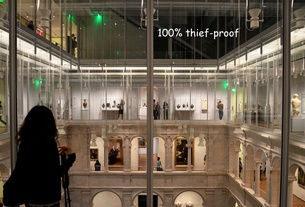Nelson's Rum
The State and Censorship
On the other hand, the Mayor's at-times conspiratorial preoccupation with the existence of a growing liberal regime of censorship seemed at odds with the rest of his speech. After noting that "96 percent of all campaign contributions from Ivy League Faculty and employees went to Barack Obama," and arguing that this statistic implied an overly homogenous intellectual environment, Mayor Bloomberg later named three political phenomena that were evidence of closed-mindedness: the Federal ban on funding gun control research, the prevalence of climate-change denial and creationism, and the Federal government's cuts to the research and development budget. Given which side of the political spectrum sustains much of this anti-intellectualism, perhaps the Mayor should have been more shocked by the four percent of campaign contributions that did not go to the President's reelection campaign, rather than the 96 percent that did.
Samuel Alito, Defender of the Faith
While much of the anger has focused on the verdict’s immediate implications for women’s health, Ginsburg's dissent shows that just as much ridicule should accompany the Court's interpretation of the Religious Freedom Restoration Act. As Ginsburg writes, the Court’s expansive reading of the law–that for-profit corporations can use a statute written with narrow intentions to wriggle out of civil regulations–has led the Supremes to “[venture] into a minefield.” The exact contours of that minefield only support her reasoning.
Oklahoma, Meet Massachusetts
A look at how Massachusetts, a liberal state whose population actually resisted the abolition of capital punishment in the early 1980s, finally rid itself of the death penalty is instructive for why states like Oklahoma continue to have trouble joining the rest of the developed world on the issue. In 1980, in the case District Attorney of Suffolk County vs. James Watson, the Massachusetts Supreme Judicial Court ruled that, “in light of contemporary standards of decency,” and “the arbitrariness and discrimination inherent in the application of capital punishment,” the death penalty was a "cruel" punishment that ran afoul of Article 26 of the Declaration of Rights of the Massachusetts Constitution, which forbids "cruel or unusual" punishment.




